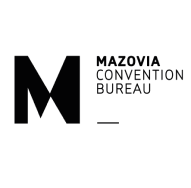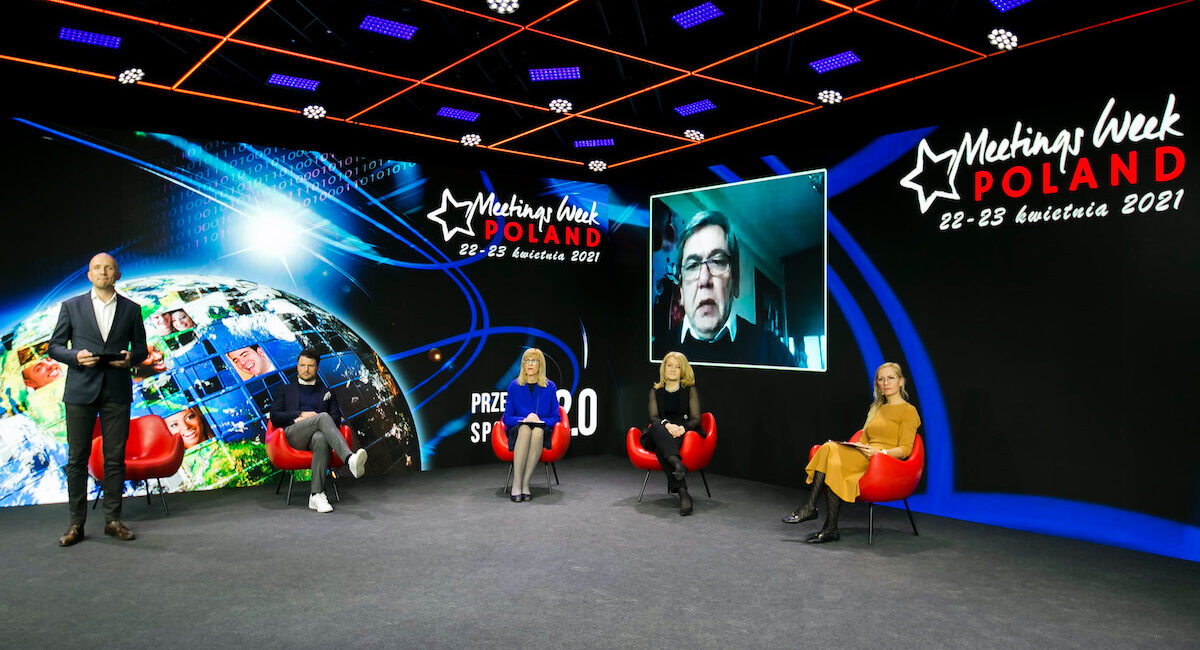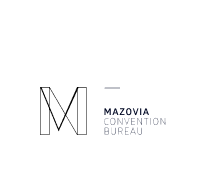The ninth edition of Meetings Week Poland (MWP) was devoted to the meetings industry 2.0, i.e. the transformation that both the industry and the tools it offers are undergoing. Participants, touching upon various aspects of the functioning of the meetings and events market, saw a ray of light in the difficult pandemic situation, namely the opportunity to recreate the market and take advantage of the chance for change.
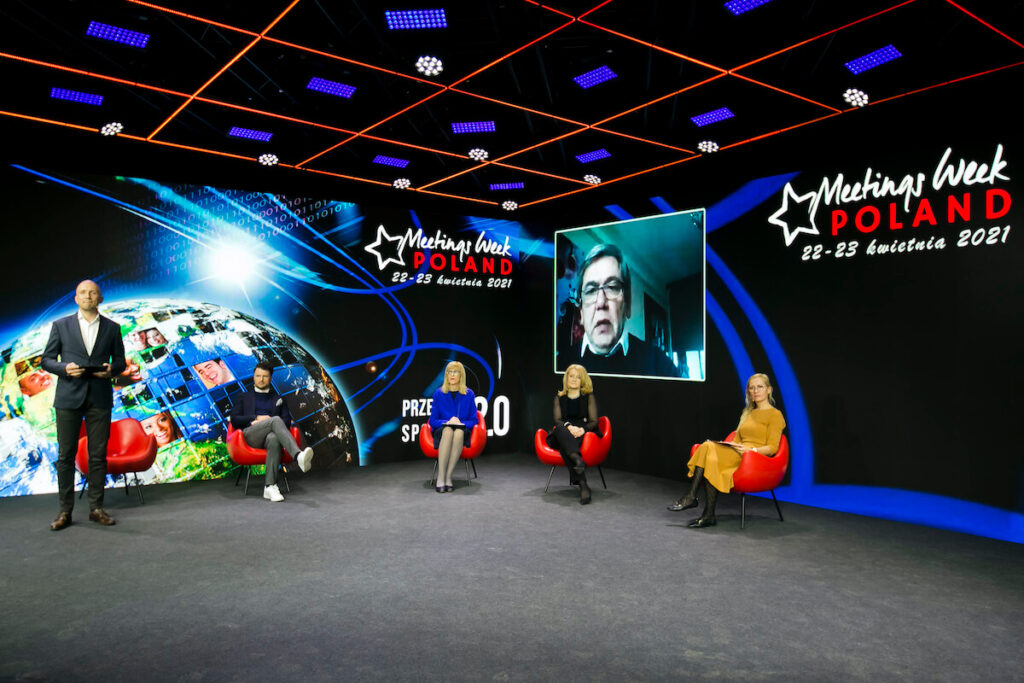
Meetings Week Poland 2021 consisted of eight sessions prepared by associations and industry organizations representing various areas of the meetings industry. The event addressed issues related to the functioning of the meetings industry in the new social, economic, and communication reality. The online meeting was attended by 20 speakers and 44 panelists, and over 700 participants registered on the platform where the event took place.
The data on the MICE sector in Poland (Report on the Meetings and Events Industry in Poland) and Europe (The Impact of Coronavirus on the European Meetings Market), presented for the first time by Aneta Książek from the Poland Convention Bureau POT, served as a point of reference for the discussions on the market.
Prospects for recovery
Compared to 2019, 2020 saw a decline in the number of events in all Polish cities, according to a report prepared by the Poland Convention Bureau POT. Second-choice cities achieved the forecast level of around 76%, while in Warsaw and Krakow the decline exceeded 80%. This refers to almost 5,000 events with 50 or more participants (in 2019, nearly 24,500), reported by municipal convention bureaus and recommended by the Polish Tourist Organization’s congress and incentive travel organizers. It is worth noting that in 2020, there were more corporate and incentive events (47%) than conferences and congresses (45%). In terms of the structure of events by industry, as in the previous year, the top three were: trade and services (33%), humanities (18%) and medicine (16%), which recorded a 1.5% increase. In 2020, as in 2019, one-day meetings (69.5%) organized for domestic participants (88%) dominated. In terms of seasonality, 68% of events took place in the first quarter of 2020. The only decent month during the pandemic was September, when almost 10% of events were organized.
Based on updated research conducted on behalf of the Strategic Alliance of National European Convention Bureaux, of which PCB is a founding member, an analysis of the impact of coronavirus on the European meetings market was also presented during the MWP.
Three scenarios for the recovery of the meetings and events industry were presented. The most optimistic scenario assumes a strong recovery based on the efficient implementation of vaccinations and the easing of government and company restrictions on travel and the organization of live meetings. It predicts a gradual return to small group business meetings starting in June this year, followed by larger events, including conferences and congresses, in the fall and winter. In the most optimistic scenario, by the end of 2021 (November–December), the number of events will be almost the same (90%) as in the same period in 2019. The pessimistic scenario predicts a long-term recovery (until 2027 and beyond), associated with prolonged restrictions on the sector’s operations. In the baseline scenario, a return to pre-pandemic levels should occur in 2025.
Support from the National Recovery Plan for the meetings industry
The official opening of Meetings Week Poland, during the Poland Meetings Destination session (organized under the auspices of The Warsaw Voice), was performed by the event’s patrons: Andrzej Gut-Mostowy, Secretary of State at the Ministry of Development, Labor and Technology responsible for tourism, and Anna Salamończyk-Mochel, Vice President of the Polish Tourist Organization. Minister Gut-Mostowy described the meetings industry as one of the key areas of the economy. He announced significant support for business tourism as part of the National Recovery Plan. Anna Salamończyk-Mochel also emphasized the value of the meetings industry for the country’s economy and the importance of building partnerships and cooperation in the field of tourism. Among other things, she spoke about the need to develop a broader strategy for the development of the meetings industry in Poland. She referred to the concept of creating one of the key European hubs for the meetings industry in Poland, which had already been announced by the management of the Polish Tourist Organization. Dawid Lasek, chairman of the Council of Experts on Tourism at the Ministry of Development, Family, and Tourism, referring to the name of the panel (Save or develop?), emphasized that the development of our sector is a lifeline, and a coherent strategy should combine the potential and experience of the workforce with the government’s vision for Poland’s economic intensification.
The participants of the session, which was partnered by the Warsaw Tourist Organization, agreed that the role of the meetings industry for the Polish economy should not diminish as a result of the pandemic. On the contrary, dynamic economic growth is not possible without even faster development of this industry than before. In addition, panel participants, representing, among others, the convention bureaus of Łódź, Krakow, and Warsaw, pointed not only to the threats but also to the opportunities arising from the changes that have taken place in the meetings market as a result of the COVID-19 pandemic.
The era of new skills, professions, and education
“A new era of the best of the best” – a thematic block organized by the Association of Conferences & Congresses in Poland (SKKP) – was entirely devoted to the skills and employees of the future. The expert discussion was based on a presentation by Dr. Bartłomiej Walas and his thesis that change management and the associated risk are among the most important skills of the new normal. During the discussion, experts talked about new combinations of competencies, competency reshuffles, the new opportunities and areas of risk created by effective online migration, and finally, whether and to what extent Polish universities are effectively responding to the dynamically changing needs of the market. In relation to these issues, SKKP presented its training offer under the name SKKP Online Academy and awarded the winners of the competition for the best master’s and bachelor’s thesis “The Meetings Industry at 5!”
Incentive Travel helps fight isolation
The session “Incentive travel in the new reality” prepared by SITE Poland and the Association of Incentive Travel Organizers (SOIT) began with a summary of the transformation of the sector by Grażyna Grot-Duziak, president of SITE Poland. The presentation, which included an analysis of the situation and trends in the incentive travel industry, and a discussion among experts (Aneta Książek, PCB POT Alicja Panasiuk, Accor Hotels, Grażyna Woźniczka, SITE Poland, Polka Travel, Łukasz Adamowicz, SOIT, BFC Group, Robert Andrzejczyk, PLL LOT) in a panel moderated by Magdalena Kondas (MeetingPlanner.pl) led to the conclusion that agencies, hotels, airlines, and convention bureaus are fully aware of the new requirements and are ready to organize trips, always putting safety first. Although agencies are facing dynamic changes among suppliers in various countries and are accompanied by uncertainty, they see these difficulties as an opportunity to optimize their work, take a new look at the creation of offers, and discover new attractions and destinations.
Agencies are increasingly becoming advisors and support for clients in achieving their business goals. The panelists agreed that trust and partnership on the part of all market participants will be key to the industry’s recovery. Experts also see a huge role for incentive travel in integrating remote teams. “The role of incentive travel will grow after the pandemic. It will be the first to recover in terms of the entire MICE market,” said Robert Andrzejczyk, Sales Director at LOT Polish Airlines. According to Łukasz Adamowicz, Vice President of SOIT, incentive travel is a cure for the social isolation experienced by customers. “It is important that we use this time of reopening to create new products tailored to our new teams. And this is an appeal to agencies and clients – let’s recreate our market, let’s seize the opportunity for change,” he concluded the discussion.
Cybersecurity defines event 2.0
The Event Industry Association (SBE) devoted its session to the key challenge of events 2.0, namely cybersecurity. During an educational debate, Anna Coban (Legal Coban), Łukasz Kistar (cyber security expert), Krzysztof Dobrowolski (ConnectTo), Janusz Jabłoński (BERM) and Dagmara Chmielewska (SBE president) as moderator attempted to define event 2.0. They raised issues such as cyber security at events, legal aspects, personal data protection of event participants, security of event organization tools, threats faced by the event industry during the production and broadcast of online events, and the obligations that event organizers should fulfill in this regard. The experts emphasized that responsibility for event security and data protection lies with both the agency and the client. Such a key element of an event as cybersecurity should also be given special attention in the event budget. It is also worth consulting experts who can advise on how to comprehensively and professionally prepare an event in terms of cybersecurity. In the new reality of events, there is no room for organizing events without proper preparation and hoping that everything will work out.
Sociological effects of the pandemic and the meetings industry
MPI Poland Chapter, together with invited experts, decided to look at the sociological effects of the pandemic and their impact on the transformation of the meetings industry. Sociologist Prof. Henryk Domański (Institute of Philosophy and Sociology, Polish Academy of Sciences in Warsaw) spoke about attitudes towards the pandemic depending on social position. Prof. Radosław Kossakowski, PhD (University of Gdańsk) pointed out the main conclusions from studies available in Poland on social life during the pandemic. The analysis covered such dimensions as professional work, social relations, ways of spending time, social emotions, and changes in physical activity habits. The final presentation was an economic and technological overview of the meetings industry during the pandemic, presented by Prof. Krzysztof Borodaka, PhD (Krakow University of Economics). The presentation referred to changes in the economic and technological areas of event organization, while presenting the six pillars of innovation-oriented companies.
Young leaders believe in the meetings industry
The Future Leaders Forum, organized in partnership with IMEX and MPI by students of the Vistula School of Tourism and Hospitality under the supervision of Dr. Krzysztof Celuch, brought together inspiring speakers representing all sectors of the meetings industry for the sixteenth time. In their presentations and speeches, they focused primarily on career development and building, education, but also on the changes that have taken place in the market over the last several months. Speakers included Aoife Delaney (DMC Network, President of SITE Global), Wojciech Liszka (President, Z-Factor), Aida Bella (Director of the Press Office, Press Officer at Totalizator Sportowy), Miguel Neves (Social Media Strategist at miguelseven.com, Editor-in-Chief of EventMB) and Jessie States (Director of MPI Academy). The panel on education, moderated by Krzysztof Celuch, was attended by Olga Krzemińska-Zasadzka (Power), Diana Jabłońska (Dan-Kart), Paweł Lewtak (Hotele Warszawskie “Syrena”), Aleksandra Komosińska (Hotel Bristol), and Paulina Zawadzka (Crowne Plaza Warsaw – The Hub). As part of the Future Leaders Forum in partnership with IMEX-MPI, the regional semi-final of the global IMEX University Challenge competition was held, which was won by Anna Kostrzyńska, a student at the Vistula School of Tourism and Hospitality.
MP Power Awards, or meetings that are not losing momentum
The last session of this year’s MWP, organized by MeetingPlanner.pl, was a kind of summary of the transformation that the meetings and events market has undergone, presented by representatives of event agencies that were ranked among the Top 10 event agencies in the MP Power Awards competition. Despite an extremely difficult year, the participants saw many opportunities thanks to which the new, rebuilt meetings and events market may, paradoxically, become even stronger and more valuable for the customers whose business goals it pursues. The strength of the event industry is confirmed by the entries for the MP Power Awards competition, which this session summarized and at the same time invited participants to the final gala.
A new feature of the ninth edition of MWP was the Open Pitch session. Anyone who wanted to present their idea, express their opinion or point of view on a given topic could join the group of speakers and take the stage during Meetings Week 2021. Presentations in this format were given by Małgorzata Bartosik (WindEurope), Rafał Kassan (winner of the SKKP Przemysł Spotkań na 5! competition) and Lidia Popławska (Eventy Diamenty).
Meetings Week Poland 2021 was held under the honorary patronage of the President of the Polish Tourist Organization and the Ministry of Development, Labor and Technology. The industry partner is the Meetings and Events Industry Council. The event partners are: Poland Convention Bureau POT, Convention Bureau – Wrocław, Brill AV Media, Symposium Cracoviense, Rent Design, and Syskonf.
The organizers of Meetings Week Poland are: the Association of Conferences and Congresses in Poland, MPI Poland Chapter, the Event Industry Association, the Association of Incentive Travel Organizers, SITE Poland, the Polish Tourist Organization Poland Convention Bureau, the Warsaw School of Tourism and Hospitality, The Warsaw Voice, and MeetingPlanner.pl. This year’s edition was coordinated by Anna Jędrocha, vice-president of SKKP.
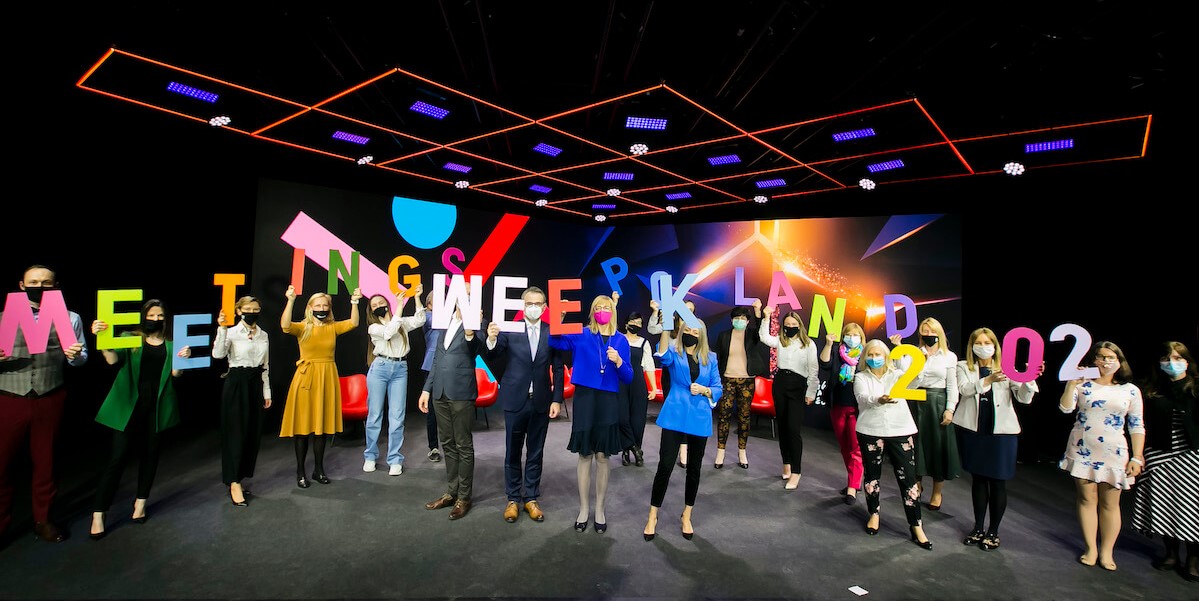
Photos: Katarzyna Cegłowska
Source: www.WaszaTurystyka.pl
